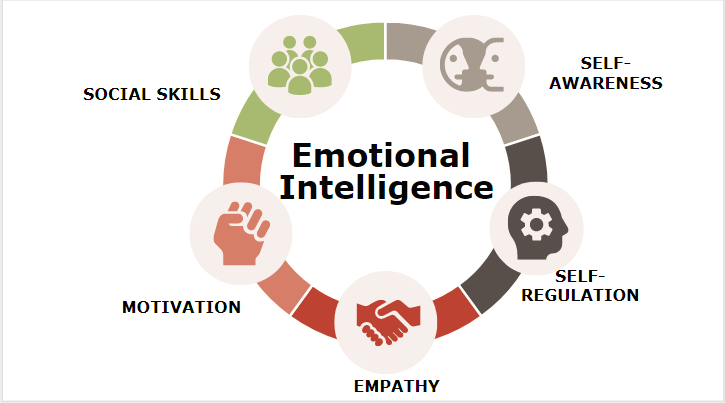Emotional Intelligence and Leadership
What Is Leadership?
The term leadership is extremely subjective as it may vary from person to person. A simplistic way of defining leadership is understanding what is not leadership. Leadership is not merely about having resplendent titles, having a higher position in a hierarchy or a wide range of followers. It can be defined as: “The process of maximizing the efforts of others by influencing them for the attainment of a common goal.”
What Is Emotional Intelligence?
Emotional intelligence (EI) is the capability to be mindful of one’s emotions and feelings. It also includes being aware of the emotional state of the people around you. In short, “a person who gives the most optimum reaction in accordance with the situation at hand.”
Of late, it is considered to be one of the most significant leadership skills. Having a good EI is important for anyone but it holds paramount significance for those who are in a position of leadership. This article will explain how Emotional intelligence and leadership are related to each other. A brief insight into improving your EI will also be given.
As established earlier, leadership and EI are directly connected to each other. Higher the EI, the greater the chances of being a better leader. An emotionally intelligent leader is able to deal with pressure situations effectively and also has a calming influence on the people around him. As surprising as it may sound but emotional quotient (EQ), which is a measure of EI, is now considered to be more important than the intelligence quotient (IQ) for potential leaders. According to the famous American Psychologist Daniel Goleman,
Emotional intelligence (EI) consists of the following five skills:
Self-awareness:
This term is self-explanatory as it entails one to be conscious of one’s surroundings, one’s own emotions and feelings, and what effect they might have on those around. Self-awareness also requires being self-critical, introspecting one’s self, and identifying one’s strengths and weaknesses. Keeping a journal and slowing down during pressure situations can help in improving this skill as it allows us to analyze ourselves from a neutral perspective.
Self-regulation:
Self-regulation means to check and regulate one’s self and not get carried away with an emotional avalanche. It entails one to holdback during tense situations and deals with them calmly. This helps a great deal in not abusing the position of authority for personal grudges or vendettas. Sticking to the universal code of moralities holds key to be self-regulatory. Practicing calmness and holding one’s self-accountable are some of the other tips to improve this trait.
Motivation:
Important leadership skill is leading from the front by staying motivated. Being lethargic, despondent and tedious gives a negative impression to one’s subordinates as they look up to the leadership during times of crisis. Thus, staying motivated helps in the pursuit of the common goal by working consistently.
Empathy:
Empathy means putting self in other’s shoes and understanding their point of view as to what outlook they have regarding the problem. Being empathetic is crucial to leading a team successfully. An empathetic leader critiques his subordinates constructively for their greater good as it may help them in their personal growth. Putting it concisely, empathy means to show that you care for others.
Social Skills:
Good leaders have excellent social skills. They know the art of conflict management. They have splendid communication skills. They are also more open to accepting change and adapting to new circumstances. It helps them in bringing the best out of people as they deal with individuals accordingly. Good leaders also do not shy away from praising others. Thus, having good social skills hold utmost importance for successful team and organization management.
You can develop these skills but first, you need to identify where you stand on the emotional intelligence ladder. Whether you want to evaluate your EI or your employees’ EI, you can hire a talent assessment firm to evaluate emotional intelligence and to learn these skills.
















